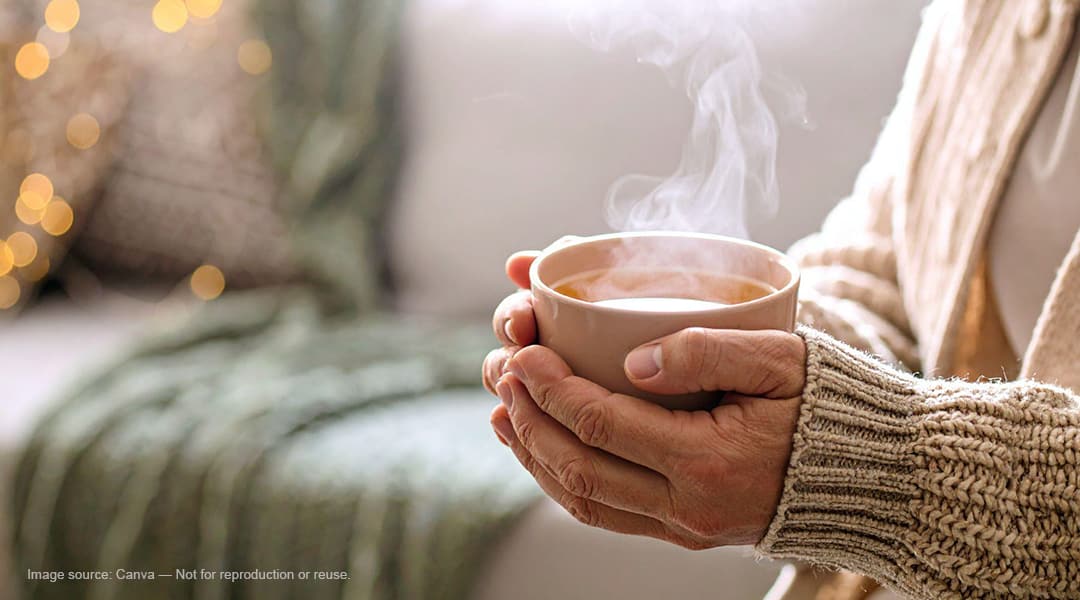Motherhood, Meals & Ayurveda: How Smart Cooking Supports Your Maternal Health Journey
Motherhood, Meals & Ayurveda: How Smart Cooking Supports Your Maternal Health Journey

Ayurveda supports maternal health by optimizing digestion (Agni), nourishing essential tissues (Dhatus), and enhancing immunity and emotional balance through mindful, warm, and balanced cooking. This approach can improve energy, reduce digestive discomfort, support postpartum recovery, and foster emotional resilience.
If you only remember one thing: warm, nourishing meals + gentle spices + consistent rhythms = deeper maternal stability.
Motherhood is a profound journey that transforms every aspect of your life, from your body to your emotions. Along this path, the way you nourish yourself plays a central role in restoring energy, supporting your immune system, and maintaining emotional balance. Many new and expecting mothers experience fatigue, digestive challenges, or emotional fluctuations, often wondering if there is a gentle, natural way to regain vitality. Ayurveda, with its time-honored wisdom, offers practical guidance that goes beyond standard nutrition advice, helping you reconnect with your inner strength through mindful cooking and healing foods.
Imagine starting your day with a warm, spiced porridge that feels like a gentle hug from within, awakening your digestive fire while grounding your mind. This simple practice can shift your energy, helping you approach motherhood with greater clarity and calm. Ayurveda teaches us that maternal health is closely tied to the balance of doshas—Vata, Pitta, and Kapha—alongside the nourishment of essential tissues known as Dhatus, particularly Rasa Dhatu (plasma) and Meda Dhatu (fat tissue), which are crucial for both mother and child. When these elements are supported through diet, digestion, and lifestyle, vitality and resilience naturally flourish.
The most widely asked questions by many mothers in Europe when searching online
“What should I eat during pregnancy for better digestion?”
“What are the best foods for postpartum recovery?”
“How do I reduce stress and fatigue naturally after childbirth?”
“Which Ayurveda meals help with sleep and low energy?”
“What is the easiest Ayurvedic meal plan for mothers?”
Understanding Maternal Needs Through Ayurveda
During pregnancy and postpartum recovery, your body undergoes profound changes. Ayurveda frames these changes in terms of dosha imbalances and the need to strengthen Ojas, the essence of immunity, energy, and vitality. Vata tends to increase during early pregnancy and postpartum, often manifesting as dryness, restlessness, or anxiety. Pitta may become aggravated, causing heat, irritability, or inflammation. Kapha imbalance, while less common, can lead to lethargy and heaviness. Recognizing these patterns allows you to tailor meals that support your specific needs and restore balance naturally.
The quality of your digestion, or Agni, is central to maternal health. A strong Agni ensures that nutrients from food are properly absorbed, supporting both your body and your baby. Weak Agni, on the other hand, can contribute to fatigue, digestive discomfort, and slower recovery. Through carefully chosen foods, herbs, and cooking techniques, Ayurveda provides a roadmap for enhancing Agni, nurturing tissues, and creating energy that sustains you throughout this transformational journey.
This guide is written for mothers and mothers-to-be who are navigating the demands of modern life—work, family, overstimulation, and sleep disruption—and want a natural, intelligent way to support their well-being through food.
Whether you are:
-
pregnant and experiencing digestive changes, fatigue, or emotional sensitivity
-
postpartum and seeking strength, warmth, and nervous system support
-
a busy mother trying to eat better without complicated meal prep
Ayurvedic cooking offers a gentle, realistic framework.
Ayurvedic Principles for Maternal Cooking
- Favour Warm, Cooked Foods
Raw or cold foods may be harder to digest during pregnancy or postpartum. Warm, cooked meals support digestion, enhance nutrient absorption, and provide a comforting rhythm to your day. Examples include soups, stews, porridges, and lightly sautéed vegetables. - Incorporate Sweet, Nourishing Flavours
Sweetness in Ayurveda is not just about sugar. It refers to foods that nourish tissues, like whole grains, milk, ghee, root vegetables, and natural sweeteners such as dates or jaggery. These ingredients strengthen Meda and Rasa Dhatus, essential for maternal energy and vitality. - Use Gentle Spices Wisely
Spices such as turmeric, cumin, fennel, coriander, and ginger enhance digestion, support immunity, and add warmth without overstimulating the system. They also gently balance Vata and Pitta, promoting calm and stability. - Balance Proteins and Healthy Fats
Incorporating legumes, soaked nuts, seeds, and ghee ensures that both mother and child receive adequate nourishment for tissue formation and mental clarity. Ghee, in particular, is highly revered in Ayurveda for its ability to enhance absorption of fat-soluble nutrients and nurture Ojas. - Eat Mindfully and Consistently
Regular meal times and mindful eating encourage optimal digestion and prevent energy dips. Avoid rushing meals or multitasking while eating, as this can aggravate Vata and lead to gas, bloating, or fatigue.
Smart Maternal Cooking in Ayurveda (The 5 Rules)
Ayurveda does not ask mothers to follow extreme diets. Instead, it supports maternal health through small upgrades that strengthen digestion and nourishment.
The 5 Ayurvedic rules for smart maternal cooking:
1. Choose warm, freshly cooked meals more often than cold or raw meals
2. Prefer soft textures: soups, porridges, stews, kitchari
3. Use gentle digestive spices (cumin, fennel, coriander, turmeric, ginger)
4. Add healthy fats for stability (ghee, olive oil, sesame oil as suitable)
5. Eat with consistency—simple meals at regular times reduce overload
These principles are especially supportive for maternal energy, emotional balance, and digestion.
Sample Ayurvedic Recipes for Maternal Health
Golden Milk Porridge
- Ingredients: Organic oats, milk or plant-based milk, turmeric, cardamom, ghee, and jaggery.
- Benefits: Nourishes Meda and Rasa Dhatus, supports immunity, and provides gentle warmth to the body.
Mung Lentil Kitchari
- Ingredients: Split mung beans, basmati rice, ghee, cumin, coriander, fennel, turmeric.
- Benefits: Gentle on digestion, balances doshas, and offers complete protein for postpartum recovery.
Ginger-Carrot Soup
- Ingredients: Carrots, fresh ginger, coconut milk, and a pinch of black pepper.
- Benefits: Enhances Agni, reduces Vata-related bloating, and provides antioxidants for tissue repair.
- Ingredients: Milk (or plant-based alternative), fenugreek seeds, turmeric, ginger, black pepper, natural sweetener (optional).
- Benefits: Supports digestion and metabolism, helps maintain blood sugar balance, and nourishes strength and vitality—making it especially supportive during motherhood and postpartum recovery.
Beyond the Kitchen: Daily Rituals for Maternal Wellness
Ayurveda emphasizes that nourishment extends beyond food. Simple daily practices support your emotional and physical well-being:
- Morning Hydration: Start your day with warm water infused with a slice of lemon or ginger to gently awaken digestion.
- Abhyanga (Self-Massage): A daily oil massage, using sesame or almond oil, calms Vata, improves circulation, and nurtures the nervous system.
- Gentle Movement: Prenatal yoga, walking, or stretching promotes circulation, enhances mood, and strengthens the body.
- Mindful Rest: Quality sleep supports Agni and Ojas, aiding recovery and energy renewal.
FAQs: Motherhood Meals & Ayurveda
1) What are the best foods for mothers in Ayurveda?
Ayurveda recommends warm, nourishing, easy-to-digest meals—like porridges, soups, stews, cooked grains, mung lentils, seasonal vegetables, and healthy fats such as ghee. These support digestion, energy, and recovery.
2) Why does Ayurveda recommend warm cooked meals during pregnancy and postpartum?
Warm cooked foods support Agni (digestive fire), improve nutrient absorption, and reduce bloating and fatigue—common during pregnancy and postpartum. They also support a calmer nervous system.
3) Which spices are commonly used for digestion support in motherhood?
Ayurveda often uses mild spices like cumin, fennel, coriander, turmeric, ginger, and ajwain in small quantities to support digestion, reduce heaviness, and improve comfort after meals.
4) What is Ojas, and why is it important for new mothers?
Ojas is the Ayurvedic concept of vitality and resilience—linked with immunity, emotional steadiness, and inner strength. Nourishing foods, rest, and a calming routine help build Ojas during motherhood.
5) Can Ayurvedic cooking help with postpartum fatigue and mood swings?
Ayurvedic cooking supports postpartum stability by focusing on warmth, nourishment, healthy fats, and digestive strength. It can help mothers feel more grounded and supported—but individual needs vary, and expert guidance is recommended.
6) What is an easy Ayurvedic meal for busy mothers?
A simple option is kitchari (rice + mung lentils + gentle spices + ghee). It is nourishing, easy on the digestion, and supports energy.
Expert Note
Ayurveda is highly personalised, and motherhood needs vary by constitution, trimester, digestion strength, and energy levels. For best results, apply these principles gently and consistently, and consider professional support if you are experiencing persistent fatigue, low appetite, anxiety, digestive discomfort, or sleep disruption.
A Gentle Invitation from ASHAexperience
Caring for your body as a mother is not a luxury; it is essential. At ASHAexperience, we offer personalized guidance through ayurvedic retreats in Berlin and India where you can immerse in Ayurvedic therapies, mindful cooking practices, and nourishing rituals. Our expert doctors and therapists provide tailored support to help you restore balance, build vitality, and navigate the demands of motherhood with confidence and ease.
Every retreat, workshop, and consultation is designed to help you reconnect with your inner strength and embrace holistic maternal health. Whether you are expecting, postpartum, or looking to regain energy while caring for your child, Ayurveda provides a gentle, natural, and deeply supportive pathway.
Your journey toward vibrant maternal health begins with small, mindful steps in the kitchen, in self-care, and in daily rituals. When you integrate these practices, you cultivate resilience, clarity, and energy that radiate into every aspect of your life and your family’s well-being. Speak with our team today to explore how our tailored programs, Ayurvedic consultations, and immersive retreats can support you on this transformative journey.
Support Your Maternal Journey with ASHAexperience
At ASHAexperience, we support women through Ayurveda-led wellness programs, consultations, and retreats designed to restore balance through food, lifestyle rhythm, and therapeutic care.
If you are in Geneva, Switzerland, or anywhere in Europe, and want a grounded Ayurvedic approach to digestion, energy, stress recovery, and maternal wellbeing, we invite you to explore personalised support.
Discover your next steps with Ayurveda (Consultation / Ayurvedic Retreat in Germany/ Ayurvedic Retreat in India)
Images used in this blog include licensed content from Canva. Such images are provided for illustrative purposes only and may not be copied, reproduced, or reused without proper authorization.
We believe in collaborative relationship-based care where our Ayurvedic Doctors, Ayurvedic Practitioner, Ayurvedic Supplement Brands, Ayurvedic Nutritionists & Chefs, Yoga, and Meditation Trainers are in sync. Contact the team who passionately works together to hold your hand in this healing journey.





